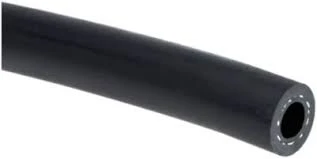High-Performance Diesel Fuel Hose for Efficient Fuel Delivery Systems
Nov . 09, 2024 14:11 Back to list
High-Performance Diesel Fuel Hose for Efficient Fuel Delivery Systems
Understanding Diesel Fuel Hoses Importance, Types, and Maintenance
Diesel fuel hoses are a critical component in the transport and delivery of diesel fuel for various applications, ranging from automobiles to industrial machinery. As the demand for diesel fuel continues to grow, understanding the importance, types, and maintenance of diesel fuel hoses becomes increasingly essential for safety and efficiency in fuel management.
Importance of Diesel Fuel Hoses
Diesel fuel hoses serve the fundamental purpose of connecting fuel tanks to engines, ensuring the safe and reliable transfer of diesel fuel. These hoses are engineered to withstand the rigorous demands of high-pressure environments and to be resistant to various chemicals found in diesel fuel. A well-functioning diesel fuel hose ensures that fuel is delivered smoothly, preventing leaks that can lead to hazardous spills and environmental contamination.
Moreover, the importance of diesel fuel hoses extends beyond mere transport; they play a pivotal role in the operational efficiency of diesel engines. A compromised hose can lead to fuel shortages, engine stalling, and costly downtime. Therefore, regular inspection and maintenance of diesel fuel hoses are crucial for businesses reliant on diesel fuel.
Types of Diesel Fuel Hoses
There are several types of diesel fuel hoses available in the market, each designed for specific applications. Rubber hoses are among the most common due to their flexibility and durability. They can handle a wide range of temperatures and are generally resistant to degradation from fuel exposure. However, they can wear out over time and may require regular inspection.
PVC hoses, on the other hand, are more lightweight and resistant to kinking. They are typically less expensive but may not offer the same level of durability as rubber hoses. For heavy-duty applications, reinforced hoses are a popular choice. These hoses contain layers of material that enhance their strength and pressure resistance, making them suitable for high-volume fuel transfer.
diesel fuel hose

Stainless steel hoses provide the best resistance to high temperatures and pressures, making them ideal for industrial applications. They are particularly advantageous in environments where chemical exposure is a concern. Furthermore, some diesel fuel hoses are equipped with anti-static properties, which help prevent static electricity buildup that could ignite fuel vapors.
Maintenance of Diesel Fuel Hoses
Regular maintenance of diesel fuel hoses is vital to ensure their longevity and performance. Users should conduct routine inspections for signs of wear, such as cracking, bulging, or fraying. Any damage detected should prompt immediate replacement, as compromised hoses can lead to severe safety hazards.
Another essential maintenance practice is ensuring that connections are secure. Loose fittings can lead to leaks and should be tightened regularly. Additionally, cleaning hoses from the inside can prevent the buildup of residues that can hinder fuel flow.
It's also important to store diesel fuel hoses properly. Hoses should be kept out of direct sunlight and extreme temperatures, which can deteriorate the materials over time. Coiling hoses without kinks when not in use helps maintain their shape and functionality.
Conclusion
In conclusion, diesel fuel hoses are integral components in the safe and efficient transport of diesel fuel. With their various types and specific maintenance needs, understanding these hoses can lead to safer operations and reduced costs associated with repairs and fuel leaks. As fuel technology continues to evolve, staying informed about the best practices for managing diesel fuel hoses is vital for any business or individual reliant on diesel fuel.
